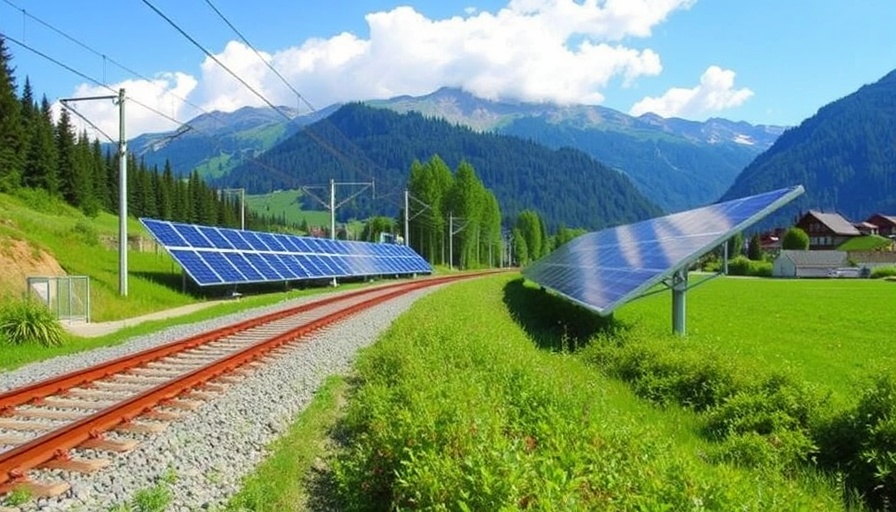
Switzerland's Innovation: Transforming Train Tracks into Solar Power Plants
In a groundbreaking move towards sustainability, Switzerland is transforming its train tracks into solar power plants. This innovative project not only enhances the country's commitment to renewable energy but also underscores the potential of integrating solar technology into existing infrastructure. By harnessing the sun's energy along the railway system, Switzerland aims to address its energy needs sustainably while setting an example for other countries to follow.
Solar Power on the Tracks: A New Paradigm
The concept of utilizing train tracks for solar energy generation is a powerful demonstration of how existing infrastructures can be repurposed for environmental sustainability. With trains running daily along these tracks, the potential for energy production is immense. The solar panels installed alongside the tracks capture sunlight efficiently, generating clean energy that can be fed back into the local grid, helping to power homes and businesses.
Historical Context: Switzerland's Commitment to Renewable Energy
Switzerland has long been a leader in renewable energy initiatives, historically relying on hydropower for a substantial portion of its energy needs. As the country moves towards a more diversified energy landscape, integrating solar power into its transportation system represents a logical next step. By 2021, solar energy had already begun to contribute significantly to Switzerland's energy mix, and the expansion into railway infrastructure is poised to enhance this yield further.
Impact on Homeowners and Businesses
For homeowners and businesses in Switzerland, this shift towards solar power on train tracks represents more than just a contribution to sustainability; it could lead to reduced energy costs. The introduction of renewable energy sources is expected to stabilize electricity prices over time, providing predictable and lower energy bills for users. Moreover, properties in close proximity to such advancements in renewable energy could see an increase in value as demand for eco-friendly living rises.
Parallel Example: Global Initiatives in Solar Railways
Switzerland isn't the only country exploring solar railways. For instance, Japan has been successfully utilizing solar panels on train platforms and roofs to power its extensive rail network. With similar initiatives actionable in various locations around the globe, the global trend showcases the viability of sustainable rail transport systems.
Future Insights: The Road Ahead for Solar Railways
Looking to the future, the success of Switzerland's solar train tracks could pave the way for larger investments in solar railway technologies globally. As technology improves and costs decrease, further integration of solar energy into railways might encourage other transportation sectors to adopt similar practices. Furthermore, innovations in solar technology, such as advancements in efficiency and storage, will likely support this shift.
Decisions to Consider: The Role of Stakeholders
Various stakeholders play critical roles in bringing solar power to railway systems. Government agencies, energy providers, and the public must collaborate to ensure the success of such projects. Support for infrastructure investments, educational outreach on renewable energy benefits, and incentives for using clean energy are crucial in driving engagement and implementation. Each entity needs to evaluate how they can contribute positively towards energy sustainability.
Common Misconceptions About Solar Energy and Rail Systems
There are many misconceptions surrounding solar energy, particularly the belief that it cannot effectively generate substantial power in regions with variable weather. However, advancements in solar panel technology have dispelled this myth, enabling systems to generate energy even in less-than-ideal conditions. Moreover, rail systems often run in alignment with high sun exposure, making them ideal candidates for solar integration.
Conclusion: The Power of Solar Innovation
Switzerland’s decision to turn train tracks into solar power plants is a formidable step towards sustainable energy solutions. As more countries adopt similar innovative approaches to renewable energy, the impact not only extends to the economy but contributes to the overall well-being of the planet. Embracing such technology can facilitate a cleaner environment and inspire communities to actively participate in sustainability efforts, redefining how we think about energy consumption and production for generations to come.
 Add Row
Add Row  Add
Add 



Write A Comment